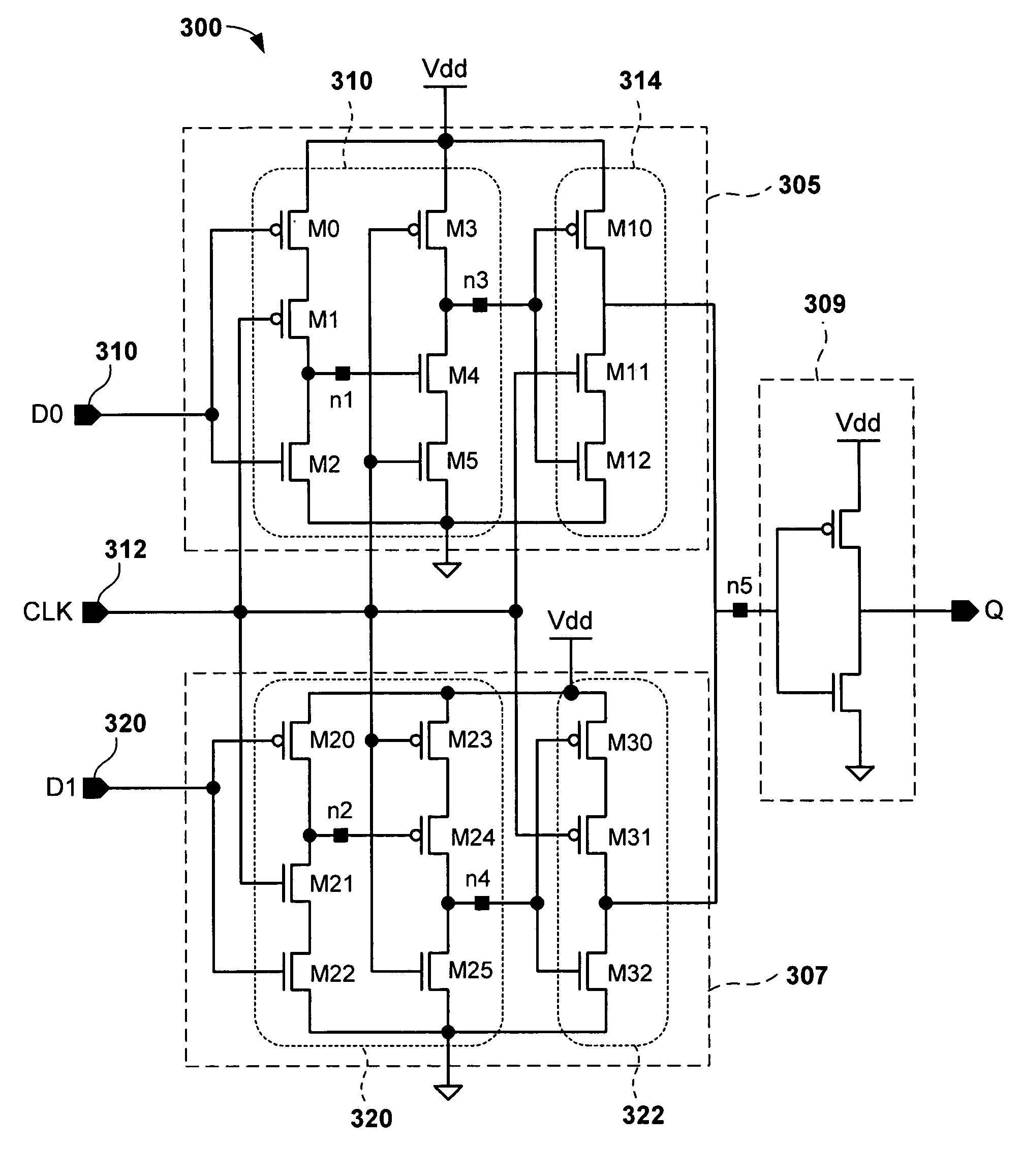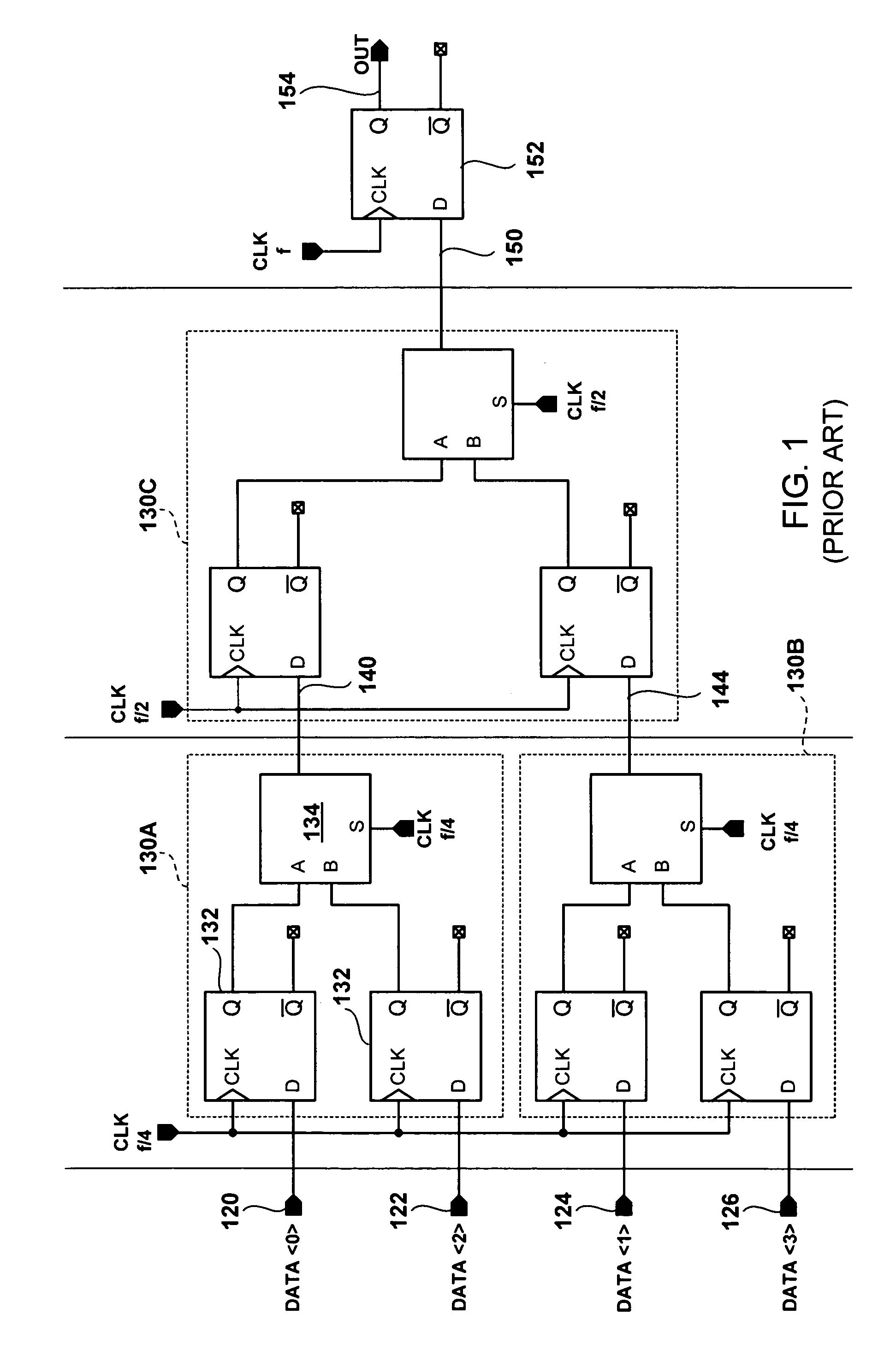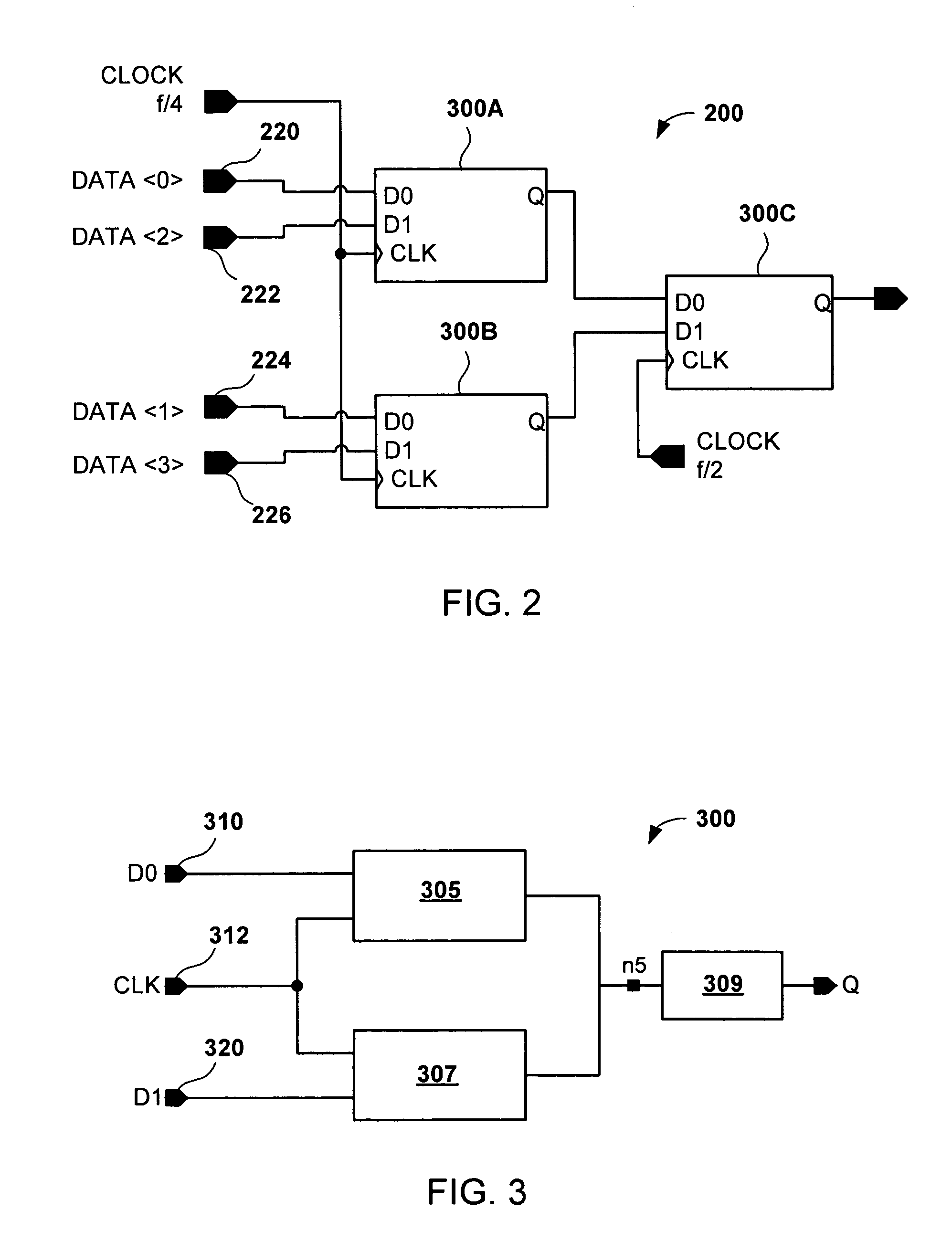Dual-edge triggered multiplexer flip-flop and method
a multiplexer and flip-flop technology, applied in the field of electronic circuits, can solve the problems of low power consumption, significant power draw, and inability to consider the complete full swing of the cmos serializer, and achieve the effect of low power drawn and high speed
- Summary
- Abstract
- Description
- Claims
- Application Information
AI Technical Summary
Benefits of technology
Problems solved by technology
Method used
Image
Examples
Embodiment Construction
[0022]The term, “serializer” is intended to mean a device that receives parallel data from separate data streams and combines them together into a single serial data signal without any data loss. A “serializer” specifically performs this function by converting incoming parallel bits of data to a single data stream wherein the bits are provided in series.
[0023]An exemplary application for a dual-edge triggered multiplexer flip-flop is shown in FIG. 2. Specifically, FIG. 2 shows an exemplary 4-to-1 serializer 200 providing an output signal Q containing data from input signals 220, 222, 224, and 226 at a frequency f. Serializer 200 is an exemplary circuit having two frequency domains f / 4 and f / 2, providing an output data signal at frequency of f. A circuit 300 is instantiated three times in the 4-to-1 serializer 200 at 300A, 300B, and 300C. Circuits 300A and 300B function in a frequency domain of f / 4 and accept data from input signals 220, 222, 224, and 126, and a clock signal coupled ...
PUM
 Login to View More
Login to View More Abstract
Description
Claims
Application Information
 Login to View More
Login to View More - R&D
- Intellectual Property
- Life Sciences
- Materials
- Tech Scout
- Unparalleled Data Quality
- Higher Quality Content
- 60% Fewer Hallucinations
Browse by: Latest US Patents, China's latest patents, Technical Efficacy Thesaurus, Application Domain, Technology Topic, Popular Technical Reports.
© 2025 PatSnap. All rights reserved.Legal|Privacy policy|Modern Slavery Act Transparency Statement|Sitemap|About US| Contact US: help@patsnap.com



